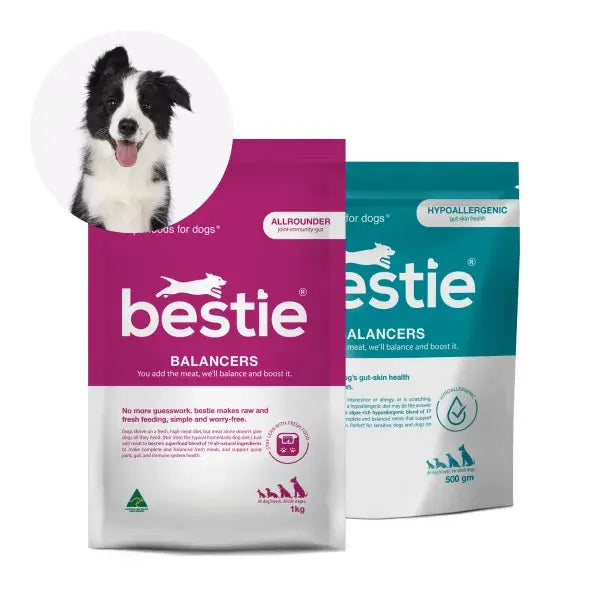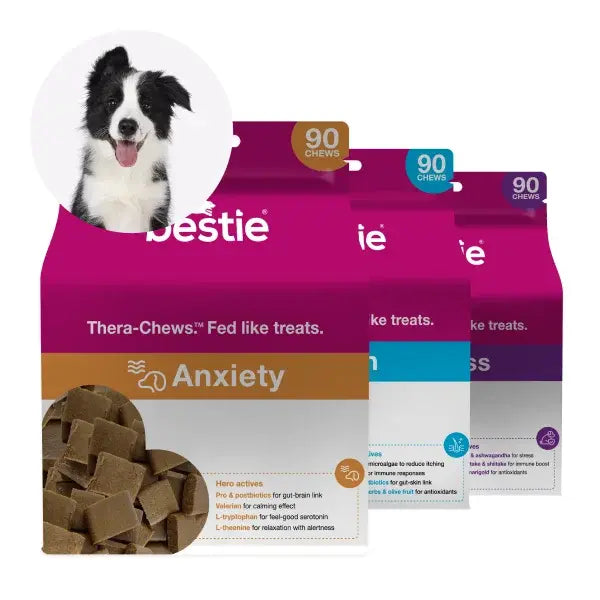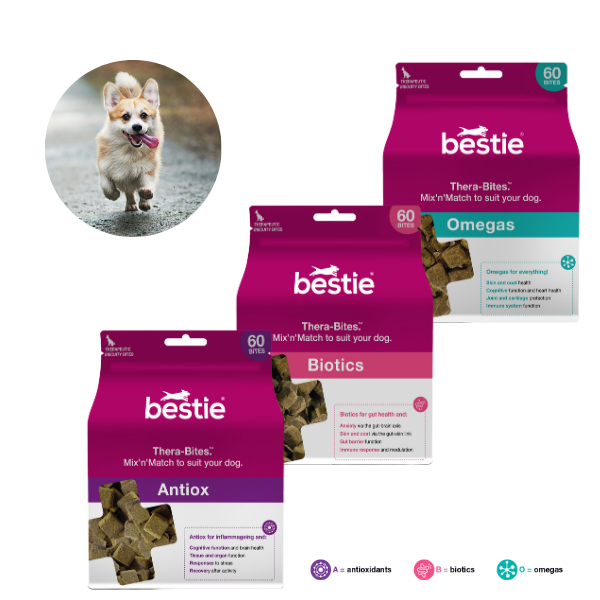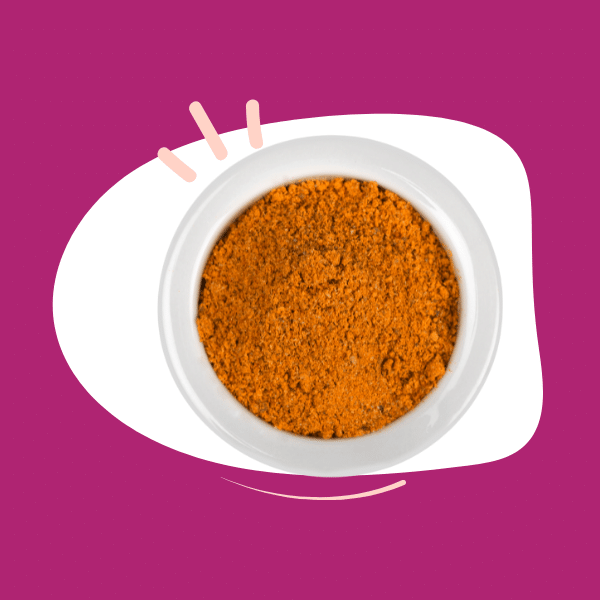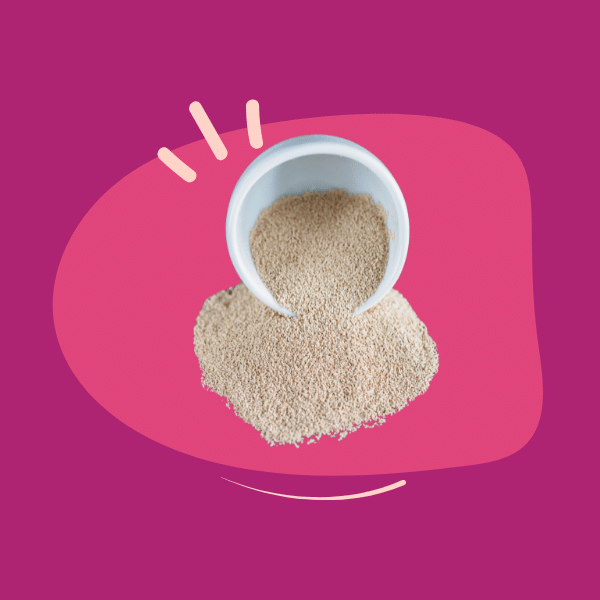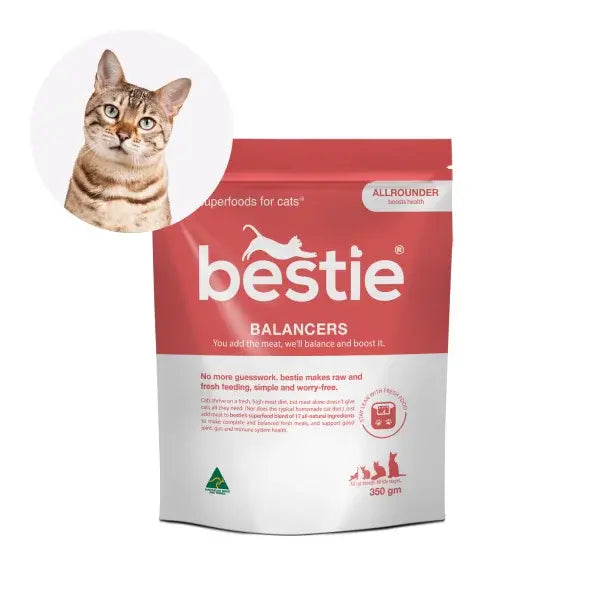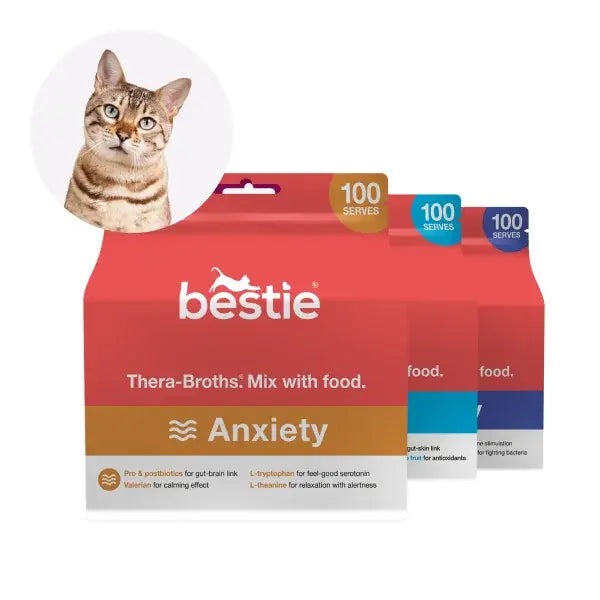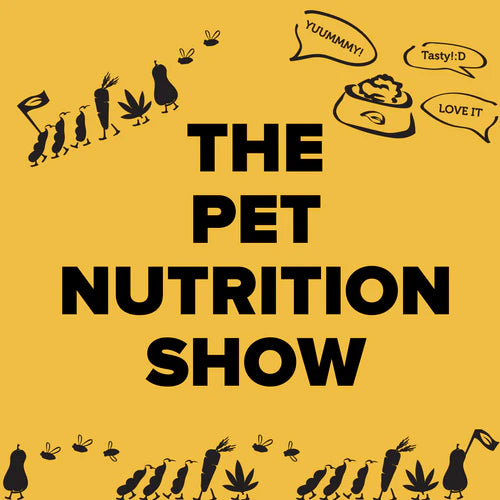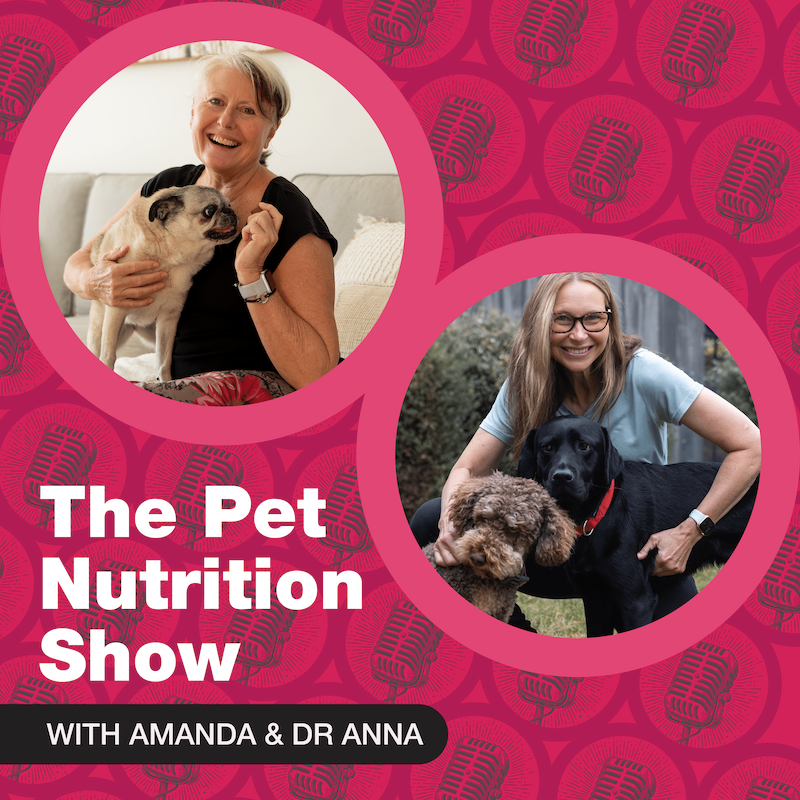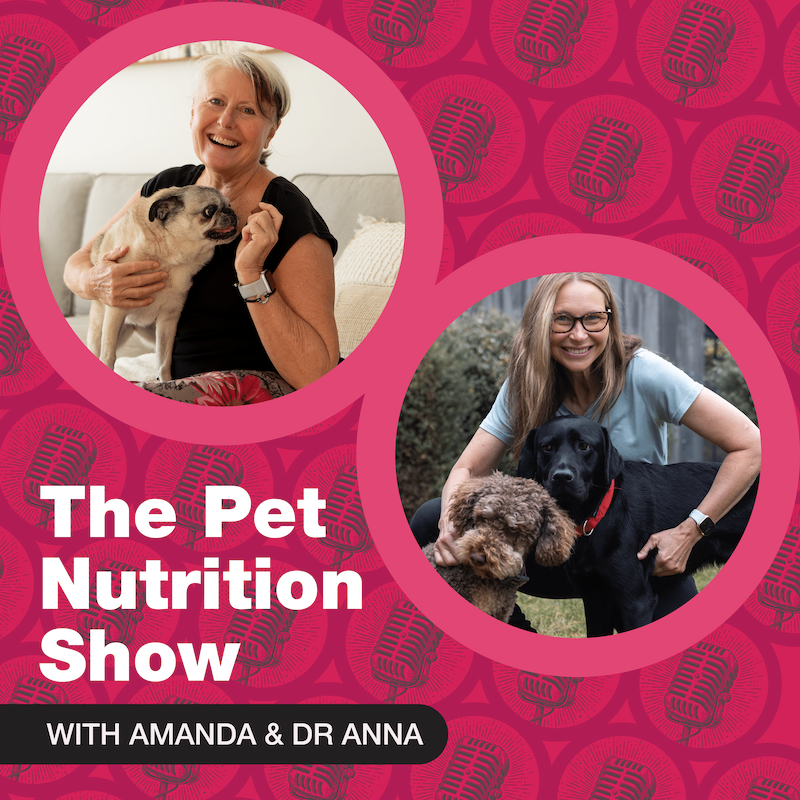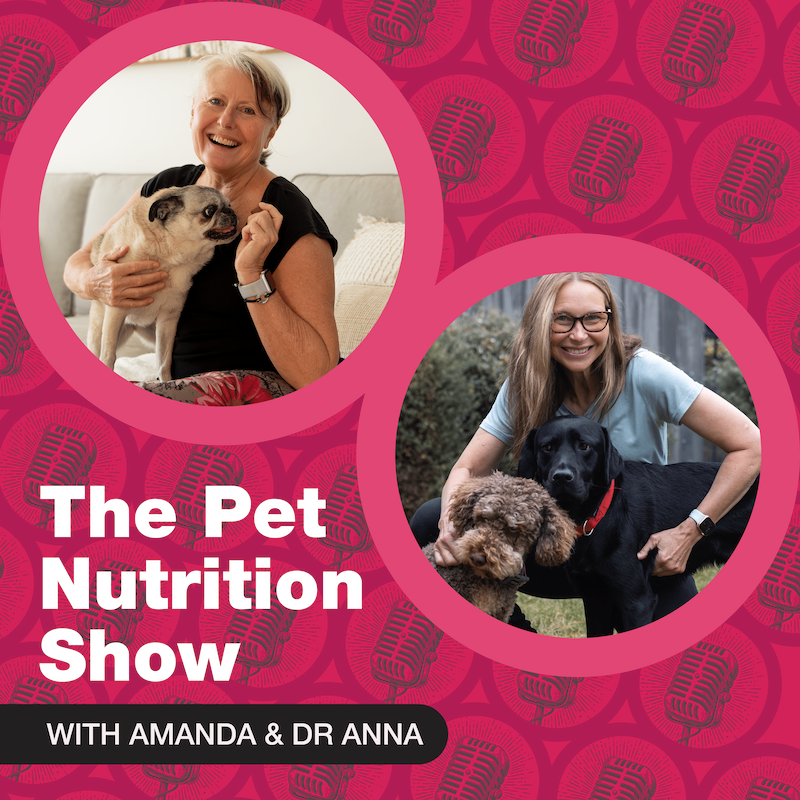In this episode of The Pet Nutrition Show, Amanda and Dr. Anna Sutton have a fascinating discussion on pet nutrition, with special guest Daniel Schulof. Daniel is an ex-lawyer, the author of the book "Dogs, Dog Food, and Dogma, and the founder of American company, KetoNatural Pet Foods, which made the news recently by bringing a $2.6Billion dollar class action against Hills, along with 2 affiliated companies and 5 research groups.
It turns out that Daniel's venture into pet nutrition started with a personal quest to improve his own dog's health, leading him to question and eventually challenge the existing pet food industry norms. He found that dogs, much like their wolf ancestors, thrive on diets low in carbs and rich in proteins and fats. This goes contrary to the common compositions found in many commercial pet foods today, which are often high in carbs.
We dive deep into the health impacts of dietary carbs, and the health benefits of low carbs. We also delve into the technical challenges of producing low carb kibble and touch on the upcoming class action lawsuit against Hills Pet Nutrition and the debate over diet and canine dilated cardiomyopathy (DCM). We'll devote a whole episode to that next week.
Anna talks about feeding dogs raw vegetables, highlighting which are safe and which should be avoided. She wraps up with a home food hack for using leftover fruit peels as a healthy snack for both pets and their owners.
00:00 Welcome to the Pet Nutrition Show!
00:22 Spotlight on Keto Natural Pet Foods and Legal Battles
00:59 Pet Q&A: The Do's and Don'ts of Feeding Raw Veggies to Dogs
02:58 Exclusive Interview: From Lawyer to Pet Nutrition Advocate
04:44 The Science Behind Low Carb, High Protein Diets for Pets
13:08 Unpacking the Impact of Carbohydrates on Pet Health
22:14 Addressing Common Concerns: Kidney Disease and Pancreatitis
24:47 Exploring the Canine Gut Microbiome on a High Protein Diet
26:30 The Transition to New Dog Foods and Gut Microbiome Adaptation
27:08 Rapid Adaptation and the Science Behind Gut Changes
29:08 Exploring the Nutritional Profile of Different Dog Diets
33:38 Sustainability and the Future of Pet Nutrition
45:45 Addressing the DCM Controversy and Legal Challenges
47:02 Reflections and Home Food Hacks for Pets
You can also listen to it on Apple podcasts here.
Ref:
We also referred to this study here, during the show. It's a recent one about Immune-Modulating Effects of Low-Carbohydrate Ketogenic Foods in Healthy Canines.
Here are some clips if you want some highlights!
Have a listen to the show, but if you’re more of a reader, here's the transcript:
[00:00:00] ANNA: This is the Pet Nutrition Show with Amanda and Dr. Anna. Welcome back to the Pet Nutrition Show. I'm Dr. Anna Sutton and with my co host Amanda Falconer. We talk all things pet food, pet nutrition and pet health. Now today we've got something really interesting, haven't we, Amanda?
[00:00:20] AMANDA: We eat. Absolutely do. Our guest is an ex lawyer, the author of the book Dogs, Dog Food and Dogma, and the founder of American company Keto Natural Pet Foods, which made the news recently by bringing a 2.6 billion dollar class action against hills, The Pet Food Company Hills, along with a couple of affiliated companies and some research groups. Now, you might be wondering why, and we will be answering that over two episodes. Today, we talk with the founder, Daniel Schulof, about the ins and outs of low carb, high protein dog and cat food, and the sustainability of high meat protein diets.
[00:00:59] AMANDA: But first, Anna, [00:01:00] it's time for Q& A.
[00:01:01] INTRO: Pet Q& A, where we answer what you're wondering about food, moods and poos.
[00:01:08] AMANDA: Anna, today's question is really super simple. Can I give my dog raw veggies?
[00:01:14] ANNA: Ah, actually it's not quite so simple, Amanda, because some veggies you can give to your dog raw, but some you definitely cannot.
[00:01:21] ANNA: So things you can give to your dog raw are things like celery, cucumber, Carrots are a good one. Potentially also raw sweet potato, although that is better cooked. But there are some veggies you must definitely not give to your dog unless they're cooked. And a good example of this is potato. So potato must get cooked.
[00:01:43] ANNA: Cooked because it contains compounds in it that can be really quite toxic to the dog if given in large amounts. And dogs will woof down raw potato if they get it, unfortunately.
[00:01:54] AMANDA: Even though it's bad for them.
[00:01:56] ANNA: Yes, they do. Other things to avoid for your doggies in [00:02:00] general, raw onion, raw garlic, cloves, chives and things like that.
[00:02:05] ANNA: But in all honesty, not many dogs go for raw onion and garlic. I hope.
[00:02:11] AMANDA: So, does that mean you can give them cooked onion and garlic?
[00:02:14] ANNA: Actually, it doesn't. You need to avoid those, too. Now, you will see on the back of labels, by the way, onion and garlic right at the end of labels. Look, in super small amounts, it's not an issue and it's often used as flavorants, but Big chunks of onion, big chunks of garlic cloves are a no no.
[00:02:32] AMANDA: And any other veggies that are good, that are, but cooked to give it to your dog? What about
[00:02:38] ANNA: pumpkin? Oh, pumpkin's great. I forgot about that one. Yes, pumpkins, sweet potato, even potato cooked is fine. In fact, in general, When veggies are cooked, they are more digestible to your dog, but sometimes it's just easier to give the raw ones as they are, and the crunchiness of celery and so forth is quite nice.
[00:02:57] AMANDA: Thanks very much for that, Anna. And now it's time for [00:03:00] our interview with the founder of Keto Natural Pet Foods, Daniel Shuloff.
[00:03:07] AMANDA: Daniel, first up, I'm really intrigued to know, why does a lawyer become a founder of of a pet food company and a nutrition advocate for pets.
[00:03:17] DANIEL: Uh, in essence, the most fundamental answer is I got very interested in making my own dog healthy. The a little bit further along answer is I ended up leaving my career as a lawyer to complete a book that I started working on while I was a lawyer that's about the weird overlapping space between the regulation and science and academic sides of pet food.
[00:03:45] DANIEL: And I began that work, really, I began it for as like a personal reference for myself. Like I got very into my dog. I'm very into physical fitness and my own health. And so I started working on trying to understand what the literature had to say about how to keep [00:04:00] my dog healthy. I had a Rottweiler, and he was like the kind of dog that needed to be exercised very regularly in order to be a polite member of society.
[00:04:08] DANIEL: And so, doing that effectively became interesting to me, and that led me to understand to learn about the problem of obesity among dogs and cats in the western world and then I just like fell down the rabbit hole and I ended up leaving my job and spending four years writing this book and so once the book was done I made pet food that is for people that are read the book and are like This guy, I'm, I believe in what this guy is saying.
[00:04:33] DANIEL: I'm persuaded by this or I'm, he's saying things I already believe in, that kind of thing.
[00:04:38] AMANDA: So we're going to get to some of the gaps that you saw in the pet food that was available. But before you do, on the website, on the Keto website, you talk about feeding as nature intended and you talk about the natural evolutionary diet of wolves, but how does that actually relate to the diet of domestic dogs today?
[00:04:58] DANIEL: The macro, typical [00:05:00] macronutrient content is quite different. One of the more interesting parts of the research that I did working on the book is I lived for a period of time with the biologists at this, at, we have one of the national parks in the United States, Yellowstone National Park. It's a very large and large park.
[00:05:16] DANIEL: notable park we have. And it's one of the preeminent places in North America for the study of gray wolves in the wild. And the Yellowstone Wolf Project is a team of biologists that lives there and studies these animals in the wild. And I spent time there as well, because as I'm sure your listeners know, domestic dogs and gray wolves are incredibly similar genetically.
[00:05:36] DANIEL: And yet phenotypically, they're incredibly dissimilar when it comes to chronic disease. You talk to the face of the Yellowstone Wolf Project, and they will tell you that disease that are very common, But non communicable in dogs in the Western world, obesity, diabetes, RC arthritis, things like that are virtually non existent in wolf populations.
[00:05:55] DANIEL: And so the question of, well, if these guys have such similar [00:06:00] genes, how are we getting such different outcomes between one species and another becomes a very salient one. And so understanding what a typical wolf diet is. Very important part of the book that I wrote. And the answer in short is that they eat protein and fat and 0 percent carbohydrate.
[00:06:16] DANIEL: One of the reasons they consume so little carbohydrate is they're not very good at digesting it in the first place. They don't make a, it's like one of very few, you guys are both nodding for folks that can't see us, but yeah, wolves don't digest carbohydrate very well. So they consume very little of it.
[00:06:30] DANIEL: Whereas domestic dogs in the Western world. are in nine out of 10 cases, eating a kibble that is composed of 30, at least 30 percent digestible carbohydrates. So 30 percent of the animal's diet is carbohydrate. So it's very different than what a wolf would have in the wild.
[00:06:46] AMANDA: And I'm reminded of quite a number of studies.
[00:06:50] AMANDA: studies, they're called free feeding studies. I think that have been done with a number of species. If you leave them alone, lots of species basically know how to select the right mix of [00:07:00] macronutrients to leave them optimally healthy for reproduction, as far as I can tell. And you know, for dogs and I think cats, it's basically, I'm going to go fat first and protein and like not a hell of a lot of carbs.
[00:07:14] DANIEL: That's 100 percent right. There haven't, to my knowledge. been like a huge volume of those kinds of studies on dogs and cats, but there is, there are kind of a pair of seminal regarded, like kind of the studies that folks refer to. And you've summarized my understanding of the findings really accurately.
[00:07:30] DANIEL: And it's perhaps not surprising, a cynical person like me might say, given like the influence of the types of pet food companies that rely very heavily on carbohydrate on the carrying out of new nutritional science every year. That we don't see more of those studies because they're pretty clear in what they suggest.
[00:07:50] AMANDA: So, your company Keto Natural then is all really about low carb, high protein. And just, this is the idiot's question, I take the name Keto Natural and I go, so [00:08:00] does that mean it's the same as a ketogenic diet?
[00:08:02] DANIEL: Well, sort of. It's kind of a nuanced answer.
[00:08:04] AMANDA: Right.
[00:08:05] DANIEL: So, first of all, the reason that we use the keto prefix is because one of the I don't know the regulation of pet food in Australia really at all, and you guys could educate me and it would be interesting, but in the United States, One of the ridiculous rules that we have, and that is evidence of how significant the influence of industry is on regulation as well, is that there are a whole cluster of different rules that have to do with hiding carbohydrates that make it really easy for producers to hide the amount of carbohydrate in their food.
[00:08:36] DANIEL: One of them is an outright prohibition on use of the Fresh and low carbohydrate. So when I set out to make a food product that was in essence as high in protein and as low in carbohydrate content as possible, it was literally difficult for me to communicate the value proposition to the consumer. This is what our product is, because I wasn't allowed to use the term that is most accurately descriptive.
[00:08:59] DANIEL: [00:09:00] However, they kind of left the loophole for the keto prefix and a lot of lay people's. Minds these days kind of clearly indicates low carb. If you go around to your grocery store and you say to somebody like, what's a keto diet, they're going to tell you some, no matter how well educated they are about that topic, they're going to be able to roughly say like, that's carbohydrate restriction.
[00:09:21] DANIEL: That's low carb eating. Right. And so that was the use of the, that's why we use the term you ask about, is it the same as a ketogenic diet? Sort of and sort of not. It depends what you mean by a ketogenic diet. For folks that aren't familiar with that term, what ketogenic diet is, is a reference to a metabolic substrate that your body and your dog's body will produce under certain circumstances called ketone bodies.
[00:09:45] DANIEL: They're like a source of fuel that your body can consume. create and relies upon. And one of the ways that you can get your body to make more of it, ketogenesis, is by reducing carbohydrate intake. And that's been shown in dogs [00:10:00] and in people. There's some degree of ketosis, which is like the process of making ketone bodies, that's going on At kind of almost any level, it's some degree that's happening.
[00:10:11] DANIEL: There are a variety of things among which carbohydrate restriction is just one of them that can help to increase the rate of that. So if you're trying to like maximize, deepen ketosis as much as possible, not only do you want to remove carbohydrates from the diet, there are other things to do as well.
[00:10:30] AMANDA: Absolutely. And actually, Anna. Uh, do we have that restriction here in Australia that we can't say locale? Uh, we do
[00:10:36] ANNA: now. The latest iteration of the Australian, uh, 5812, uh, probably got those numbers right way around, standard, now states we do now need to list carbohydrates and percentages on pack. And there's a lovely sentence in there that says, if you follow the American standard, Then you need to comply with the AFCO guidelines on the late thing.[00:11:00]
[00:11:00] ANNA: So yes, we also can't say low carb anymore. Wow. Now, that's only if you happen to be accredited with the PFIA. If you're not, You can do what you want, within reason.
[00:11:12] DANIEL: So the second big way that the U. S., and Anna I'm sure knows this already, the second big way that the U. S. pet food regulations make it very easy to hide the carbohydrate content of your products is that as of today, And just still like for the past decade, since as long as there's been pet food regulation in the U.
[00:11:31] DANIEL: S., you haven't been required to disclose the carbohydrate content of the products. And so unlike on, I'm looking around my kitchen for a human food package product, because like, we're all very familiar in the U. S. with a certain quantitative nutrition panel that our Food and Drug Administration requires all brands to put on human.
[00:11:52] DANIEL: Consumption packaged foods. And of course it has the carbohydrate content are, you know, pet equivalent of that does not have a [00:12:00] line for carbohydrate content, but it is actually being revised and like new rules have been adopted. They're not enforced yet. And so finally, I think that's what you're kind of referring to, right?
[00:12:10] DANIEL: Anna, that it's derivative, you guys, there's a derivative of that.
[00:12:13] ANNA: That's right. We're essentially following the pack in that regard. So you've got a year or two to put those changes on pack, depending, but
[00:12:21] DANIEL: Yeah, well, uh, more in all likelihood, unfortunately, like as somebody that sells low carb dog foods, let me tell you, like, that can't come soon enough, but AFCO is recommending that our states, it's beyond the scope of this, but it's like at our, AFCO is a private organization.
[00:12:38] DANIEL: State, individual states have government authority and they adopt AFCO's regulations at the state level and AFCO has basically said five or six years you should give just what they call prosecutorial discretion or you shouldn't really enforce this for five or six years which is just like, sir, but. You know, it is what it is.
[00:12:55] ANNA: Oh, well, it'll be 10 years for us then.
[00:12:58] AMANDA: Okay. Moving from that though, [00:13:00] we know that dogs want to have more fat and protein versus carbohydrates and that's what they'll do if sort of left to their own devices. But what about the impact of carbohydrate levels on various aspects of health, particularly obesity and diabetes, which you mentioned?
[00:13:16] AMANDA: Can you explain how that works? What's that link?
[00:13:19] DANIEL: Yeah, so let's take them one at a time. With regard to obesity, in my judgment, and it's kind of the main scientific thesis of my book, is that despite what your veterinarian will most often tell you, where that, which is that obesity is primarily a function of overfeeding your dog or not giving it enough exercise.
[00:13:40] DANIEL: Dietary carbohydrate in my judgment is the fundamental cause of obesity in pets in the Western world that you literally, to my knowledge, I'd say this all the time. And I've yet to have somebody come up with a counterexample, a single one. You can't make a dog. You can take fat off of a dog, a variety of ways.
[00:13:58] DANIEL: If you have a, if you give me a fat [00:14:00] dog and you don't give me the ability to restrict its carbohydrate intake. I can still lean that dog out through exercise, through portion control. There are a variety, just like with people. It's like, there are different things that will contribute to leaning out. You cannot make a dog obese in the first instance without dietary carbohydrate.
[00:14:17] DANIEL: It is a necessary part of the equation. It has also been shown another way that I like to frame it up. When I sit, like to try to. add some detail into the generalized statement that carbohydrate is the fundamental problem, is that the kind of study, what, in human nutrition, there are very, like, vigorous debates among nutritional authorities as to whether or not carbohydrate plays a uniquely bad role in obesity, causing people to get fat.
[00:14:43] DANIEL: And one of the things that is very helpful in settling those debates are what are called isocaloric feeding trials. So the kind of Exper scientific experiment where you take two groups of subjects and you give them essentially the exact same lives and the exact same diets, the [00:15:00] same number of calories, but you just tweak one thing.
[00:15:03] DANIEL: One group gets a greater fraction of their calories from protein. And the other gets a greater fraction from carbohydrate. You just do that trade off just protein and carbohydrate typically contain the same number of digestible calories. And so like you can feed them. If you can feed folks, the exact same number of calories, You can really, and you monitor the differences in their bodies, it can help to settle that debate.
[00:15:23] DANIEL: Problem in the human world is that it's very hard to do. People don't want to be restricted that kind of way. You have to live in what's called a metabolic ward. You have to make sure that every piece of food you're eating is like, but with dogs and cats, it's much easier. And so folks have carried out that study.
[00:15:38] DANIEL: a half dozen different times, and I walk through them all in the book where they take two different groups of animals, keep their lives exact. They're braised in laboratories. Their lives are exactly the same. They get exactly the same number of calories because you can scoop and serve it very carefully.
[00:15:54] DANIEL: And they just change one thing, the amount of protein or carbohydrate. Every single time they carry out the experiment, they get [00:16:00] essentially the same results. Which is the dogs or cats that eat more carbohydrate wind up fatter. The dogs and cats that eat the exact same number of calories, but just a greater fraction of them from protein end up leaner.
[00:16:12] DANIEL: And so, like I try to say pretty often calorie calorie for calorie carbohydrate is more fattening than other nutrients for dogs. It's been well established. There's not a single piece of counter evidence that I'm aware of. So those are the two ways, like, that I'd like to frame up the blame for carbohydrate when it comes to obesity.
[00:16:30] DANIEL: When it comes to diabetes, I mean, diabetes, for folks that are listening to this that have only a passing familiarity with the disease, there are kind of a few different flavors of it, but what it boils down to is, Essentially an allergy to carbohydrate your body your dog's body Disperses with like all carbohydrate is composed of a sugar molecule called glucose like it's chains and chains of this stuff called glucose And when you eat a carbohydrate where your dog eats a carbohydrate It gets broken down during digestion, and [00:17:00] all gets broken into these individual glucose, or sugar, molecules, and goes into the blood as sugar.
[00:17:06] DANIEL: That's not a good thing. It can't stay in the blood, or it becomes toxic, and it'll make you very sick and can kill you. But your body, and your dog's body, like all this stuff, At a reasonably analogous level, like applies to both people and dogs. And so your body has a really handy way of dealing with that.
[00:17:23] DANIEL: It produces a hormone, a very dis like specific discrete hormone called insulin. And insulin gets the glucose out of the blood and puts it in places where it can be stored safely. Diabetics don't do that well. When they get a big flood of glucose into their blood, for one of a couple different reasons, they don't have enough insulin to get it out of the blood and so it stays in the blood.
[00:17:45] DANIEL: So that's why I say it's essentially an allergy to carbohydrate because glucose, blood glucose is spiked by eating carbohydrate. That's like what glucose is. And, um, they don't have, diabetics don't have the ability to deal with that in the same kind of way. And so [00:18:00] you can imagine one of the most common sensical Um, treatments for an animal with diabetes, whether it's a human or it's a dog or it's a cat, is to take the carbohydrate out of the diet and to put less glucose into the animal's blood.
[00:18:14] DANIEL: So you need less insulin, the thing it can't do very well or well enough in the first instance. And yet that's not the standard of care for at least in the United States. For dogs that have diabetes, if you walk into the vet and your vet, through testing, determines that your dog doesn't make insulin well enough to deal with its blood glucose, they will say, we're going to put you on a prescription food.
[00:18:37] DANIEL: And that prescription food is going to be 40 percent digestible carbohydrate. It's just gonna have a bit more fiber, indigestible fiber, than a typical garden variety kibble would have. Which does help, like blood sugar levels, that will keep it somewhat lower, but it's like a way better thing to just digest.
[00:18:57] DANIEL: take all the carbohydrate out of its diet [00:19:00] altogether and not introduce the thing that it's allergic to. And so yeah, that's why it's so central. It's like carbohydrate is the, the, that's what you're talking about when you talk about diabetes. It's like an allergy to that. So it's very simple. Yeah,
[00:19:12] ANNA: just on that note there, Daniel, most dogs If I understand correctly, are type 1 diabetics, so, you know, they're no longer making enough insulin and quite a small portion of type 2 diabetics, which are insulin sensitive, their insulin doesn't do what it's supposed to do.
[00:19:30] ANNA: So, so I can kind of see. Why the vets would choose a prescription diet for type one dogs, because you're giving them insulin anyway. So you just want to keep the carbohydrates stable, but you lower the dose. That's right. You need less. And that's what I was getting at.
[00:19:45] DANIEL: Yeah. It's like, that's the assumptions that are baked into that's the history of diabetes care in the United States for people has followed this trajectory.
[00:19:53] DANIEL: It's just much further along. It used to be the case. That was kind of the recommendation, or it was just like. You [00:20:00] have exogenous insulin. You're going to take an insulin shot. You're not going to be able to make it well, but that's fine. You just, you just take your insulin shot. What they discover later is that like, that might not be a great answer.
[00:20:10] DANIEL: Like injecting a bunch of insulin into your body might have repercussions for other aspects of your health. And so not to mention it's costly. Why commonsensical solution.
[00:20:21] AMANDA: So I'm just wondering, I mean, I've read studies that kibble diets can be pro inflammatory. So just wondering. How does a high protein, low carb diet, and I know yours comes in a kibble form and we'll talk about that in a little bit, but you know, how does that affect the markers of inflammation and also immune response in dogs?
[00:20:40] DANIEL: I've always been a little bit like, I don't over index. evidence on issues of inflammation and immune response. And the reason I don't too much is I think they're kind of gameable. There's like a lot of different variables at play there. It introduces a possibility that you can [00:21:00] find the result you're looking for.
[00:21:01] DANIEL: You're going to monitor 10 variables at once, find the one that correlates and report that. And it's like P hacking. It's this kind of thing that happens and just barely above board science. That said. Earlier this month, I didn't even know this was came out. There was a study published earlier this month by folks who are associated with Hills Pet Nutrition, a company that I'm sure we'll get to in a second.
[00:21:24] DANIEL: I have a kind of unique adversarial relationship with right now, but somebody sent me this and I was like, I can't believe they carried this out. It's about, I don't, are either of you guys familiar with this? They essentially looked at the inflammatory response of low carb diet, like a few different kinds.
[00:21:40] DANIEL: They use the expression ketogenic diets. They just took like. Garden variety, some kind of Hills product and compared a cluster of immune response and inflammatory markers For two other groups of dogs as well dogs that were fed a high protein low carbohydrate Option and a high fat low carbohydrate option and they their [00:22:00] results are very clear that both of those groups of dogs Did much better on all the inflammatory markers that they were looking at and if you guys I'll be able to send this to you If you want, we can link it out in the show notes.
[00:22:12] DANIEL: Like it's just, yeah, it's literally weeks old.
[00:22:14] AMANDA: But there have been some studies that have suggested that a high protein diet can lead to, you know, be more likely to lead to kidney disease and pancreatitis. Got a view about that?
[00:22:25] DANIEL: I have two different views, I would say. With regards to kidney disease, We have a really, we have a like dedicated resource to this topic on our website because in my judgment, it's a, it is something that you definitely hear folks say that has been shown, including professional type folks, clinical vets, or other folks who have a high level of scientific literacy.
[00:22:49] DANIEL: In reality, there is not good evidence supporting that assertion whatsoever. They've carried out multiple studies where they've done, I'll get, I hope I can get the term right, where they, [00:23:00] what is it, when you have a surgical removal of one or part of the kidney, It's like nephrectomized. It's some kind, but there are two different studies that I'm aware of where they either they took out one kidney altogether and 75 percent of kidney mass in another dog or another group of dogs fed them very high protein diets and looked for markers of poor kidney function as a result of it and essentially reported nothing notable.
[00:23:27] DANIEL: Pennsylvania is a big university in the United States. There's a doctor, a veterinarian who worked there for a time until he died named Kenneth Beauvais, B O V E E with an accent, a goo on the first E, who put out a paper called, it's like a. The persistent myth of linking protein consumption and kidney function in dogs.
[00:23:48] DANIEL: And in essence, like it's a literature review that walks through, like, how did we get this idea in the first place? To what degree is it well backed up? But I've never seen anybody go, [00:24:00] Oh yeah, if you give it to like this study convincingly shows that giving dogs protein is likely to damage kidneys. All that being said, if you have a dog that has a distinct disease.
[00:24:11] DANIEL: you're dealing with for your issues like you have most of the stuff most of the reasons i advocate our product are like either very specific disease applications or generalized chronic disease mitigation like if you're trying to promote health you're trying to reduce risk of chronic disease as much as possible if you've got a special case where there are specific applications There's more to it than that.
[00:24:35] DANIEL: But yeah, that's generally the response on kidney is I'm like, no, that's not actually a thing on pancreatitis. I'm not even aware of anything suggesting that I never really get that.
[00:24:46] AMANDA: Okay. Let's talk about the gut. For a sec, because Anna, you mentioned the microbiome. So how does a high protein, low carb diet affect the diversity and composition of the canine gut microbiome [00:25:00] compared to a standard diet?
[00:25:01] AMANDA: Do you know? And is it a good thing?
[00:25:03] DANIEL: Can't speak to specifics. What species are of microbiota are More present, less presence, more diverse, less diverse. But I can tell you that it has a major impact on it. I know that. And I'm sure Anna can educate me on the state of the research around that. But it's like, I mentioned earlier, dogs evolved from wolves.
[00:25:24] DANIEL: And one of the things that changed when they made that, uh, jump to arguably a different species, but really, you know, they can interbreed and they're hardly even two different species is starch digestion. Like they can digest starch better than wolves can, which is not a reason to suggest they should be fed this stuff, but they can digest it reasonably.
[00:25:42] DANIEL: But the gut microbiome plays an important role that stuff that's like just on the fence of them being able to pull nutritional content out of They're relying on the gut microbiome to do some degree of that And it's as you guys i'm sure talk I can see from your materials This is a subject you guys talk about a lot, you [00:26:00] know, it's an incredibly diverse Ecosystem in there and when you take some of the stuff is very starch hungry some of the stuff much less So you starve it of starch and it looks very different so clearly impacts it And so a nice example of this is that at least in the u.
[00:26:19] DANIEL: s Maybe this is a worldwide thing. You buy a garden variety bag of kibble, and you look on the back of it and you're like, I want to feed this to my dog. How do I feed this? You'll typically see a disclaimer that says, Don't switch all at once. You need to transition in. You guys are nodding along like you've probably seen this too.
[00:26:35] DANIEL: It's like a ubiquitous thing. But what it is, is like the gut microbiome needs to get adapted to this new food thing that we're putting in there. It doesn't happen when dogs make the switch onto ketona. We're so low in starch content in the first instance, that kind of like, you know, Inability to break that stuff down.
[00:26:54] DANIEL: That might happen if you switch from a 30 percent rice diet to a 40 percent potato diet [00:27:00] is really uncommon. And so like our thing on our instructions, it's like, don't even worry about it. Just make the switch over all at once. And you probably won't experience anything like that.
[00:27:08] AMANDA: There's also been some recent research that came out from the U S I'm pretty sure it was Kelly Swanson was the lead academic.
[00:27:14] AMANDA: He's done a bunch of stuff, but basically that paper showed. It happens a hell of a lot faster in the gut than you actually thought, you know, because if you look at those sort of standard transition programs and it's all, you know, like one to three days, do 75 percent and you know, the next, you know, like take your 14 days, whereas what he's saying is basically the whole switch happens a whole lot faster than we ever, ever thought, you know, four days to a week for a healthy dog.
[00:27:36] DANIEL: That's interesting. You could definitely see how in some, like if you starve a specific, like some of these. These things that are in there are burning very specific types of fuel for energy. And it's like, if you take like the glucose out of a dog's diet, for instance, and all of a sudden that every species in the gut that's reliant upon that is just essentially being starved all at once.
[00:27:57] DANIEL: You could see how they die off very quickly. [00:28:00] I have no sense and expertise in like how reproduction of other ones comes in and takes over quickly, but I know they're short lifespans and reproduce quickly, so I would imagine it.
[00:28:11] AMANDA: And I think it's also early science. I mean, Anna, you might correct me here, but you know, as a lay person, my observation is it's kind of still early days.
[00:28:17] AMANDA: I think some of the stuff we know is that if you eat one diet, you get a vastly different sort of microbiome population, whatever is the description. If you eat another diet and you get a different population as to, you know, whether those strains are kind of have what effect and these strains have this effect.
[00:28:33] AMANDA: I think that whole thing is probably still early days. Am I on the wrong track? No, you're
[00:28:37] ANNA: dead right, Amanda. I mean, the changes. Take place much quicker than we really thought, but the really interesting stuff is not really do the changes take place, but what's happening further down the track. So what are the signaling molecule appeals that are changed and what do they do to the wider brain?
[00:28:54] ANNA: body. So that's a metabologenomics, I think is the term, or metagenomics. [00:29:00] Yeah.
[00:29:00] AMANDA: And we're going to actually do a few episodes really digging into the gut in a few weeks time, aren't we, Anna? Yes. So that will be some more detail. We'll talk lots about poo and all that other stuff, but for now, so how does the protein and, I mean, we know it's higher protein or low carb, but how does, and let's talk about yours for instance.
[00:29:21] AMANDA: So how does the protein and fat content. For instance, in your pet food compared to that in raw and fresh diets, raw meat bath style diet and a typical kibble, but on a dry matter basis so that we can kind of compare apples for apples.
[00:29:37] DANIEL: It's much easier to talk about typical in the kibble world because there's less variety on those fronts.
[00:29:43] DANIEL: In my experience, you know, cheap kibble to 95th percentile highest price kibble All falls somewhere in the range of 25 percent [00:30:00] to 45 percent protein on a dry matter basis. Teens, low teens to low 20s for fat. a fraction ash, a fraction fiber, a fraction moisture, or not moisture in this case, and then something like 30 percent to 50, 60 percent digestible carbohydrate.
[00:30:22] DANIEL: When before I founded a dog food company, I fed another kibble product. I was already a like more or less a one issue shopper where I cared. I was like I want to feed as much meat based protein as little carbohydrate as possible within my budget. And so I fed a product made by the Canadian company Champion Pet Food called Origen.
[00:30:42] DANIEL: And so And they were the lowest dietary carbohydrate that I could find at the time. And that was something like mid twenties. They now have a product that's like high teens. I think our, on as fed basis were 5. [00:31:00] 5%, which is very, you know, it's like I said, it's much lower than most kibble. It's lower than essentially all kibble.
[00:31:08] DANIEL: You asking about it on a dry matter basis. You know, it's. It's 10 percent moisture, so it's something like 6. 5 percent on dry matter. So it's very low, but it's not 0%. That's comparison to kibble. It's 80 percent less than like what I thought of as the lowest carbohydrate content I could find before, and it's 90 plus percent less than the vast majority of options.
[00:31:31] DANIEL: Raw and fresh, much less typical. There are products that are excellent nutritional profiles where there's literally zero carbohydrate. I think this is what you're referring to. When you say like a barf diet, you can absolutely construct a diet for a dog using bones, meat, raw products like that, that's 0 percent carbohydrate.
[00:31:52] DANIEL: And so to, for, and as a, otherwise a complete balanced nutritional profile. And so for those. products, we [00:32:00] are considerably more carbohydrate. It's still relatively little, but it's considerably more than those. Unfortunately, in my experience, not all raw fresh diets put that quality forward. There are, there's at least in the US, this kind of like group of commercial products where they're trying to leverage the good things, the good reputation that raw and fresh diets have come to enjoy because they very often have better nutritional profiles.
[00:32:32] DANIEL: They use cheaper ingredients that have less prompt, like healthful nutritional profiles. They end up with a lot of carbohydrate. Anyway, those kinds of products, there's not the There's a startup in the United States that's grown very large, very quickly. That's got a lot of, it raised a lot of money.
[00:32:49] DANIEL: They're called the farmer's dog. Are you guys familiar with them?
[00:32:52] AMANDA: We know it.
[00:32:53] DANIEL: Okay.
[00:32:53] AMANDA: Yep. We have our Australian version of that. Yes. Yep.
[00:32:56] DANIEL: The nutritional profile is like good, not great. [00:33:00] In my judgment. It's like, it's better than a garden variety kibble, but it's like 30 plus percent digestible carbohydrate.
[00:33:05] DANIEL: It's a fresh diet. It costs seven times as much as kibble or something like that. And I told you a long time, I'm like, If you buy what I'm selling with, er, Conceptually speaking, like if you're like, I want to feed my dog a low carbohydrate, high protein diet, you can do better than ours. If you go into raw or fresh products, not all, but some are even better than ours, but don't assume that all are created equal.
[00:33:29] DANIEL: Cause you will get ripped off by some folks who will sell you stuff. That's that same price point. But a much worse nutritional profile. Does that all make sense?
[00:33:37] AMANDA: Yeah, it makes sense. And, and I'm just going to skip to sustainability right now. So let's say I take on board what you're saying and I go, yep, Daniel, you're absolutely right.
[00:33:47] AMANDA: You know, the best thing for my dog is high protein, low carb. And if I'm really going to do the absolute best thing from a health point of view, well, then I'm probably going to feed a really good raw and fresh diet. But with that degree [00:34:00] of meat protein, how sustainable is that choice?
[00:34:03] DANIEL: I don't know the answer to that, but I presume that it is not particularly sustainable, you know, it's like there are, I know, here's what I know about that issue, no more than a layperson, I put it that way to begin with, but I know that waste is a big part of the problem as it's experienced these days regarding like, sustainability of food choices, that minimizing waste is a big part of it, it's a big part of it.
[00:34:28] DANIEL: I think that the pet food industry is sort of geared to do okay there, in that it's meant to be, in some ways, the meat products that are used are a complement to the parts that are used for the human food system. Like, it is the case that there are parts of, like, poultry or lamb or whatever product that are not, after the animal is slaughtered, are not being used for human use that are part of the pet food ecosystem.
[00:34:57] DANIEL: Other than that, my understanding is that, yeah, [00:35:00] this is not a sustainable practice over the longterm trying to feed animals, pet animals, the diets that are optimal for them nutritionally, that it is like a crux that the industry is going to have to deal with. Whether it means people having fewer pets or some kind of creative solution that it doesn't seem like.
[00:35:18] DANIEL: It means sustainability is the right way to look at it. This sounds like an obvious thing to you guys who know this issue so well, but like it isn't sustainable to like continue essentially giving these guys what they've evolved to eat, unless we're dealing with lab grown meat or some other kind of very creative solution, insect proteins, things like that.
[00:35:37] DANIEL: And they are, I presume they all will have some parts of play to the extent that this problem gets solved in a serious way, but they all feel like they have. Issues, you know, no, there's no perfect answer, but it doesn't feel like there are clear answers to me at this point. Yeah.
[00:35:52] AMANDA: I mean, I think the raw diet is very much a first world choice and, you know, to be sort of on my soapbox about it.
[00:35:59] AMANDA: But [00:36:00] you know, if I ask you though, you know, like you're talking, you know, high protein for your food. So presumably, and we've looked at the ingredient label, but. Presumably that's not all meat. So where are you standing in terms of, of the mix of proteins? What role does plant protein, can plant protein play in the foods that you develop?
[00:36:22] DANIEL: Oh, it plays a limited role. You know, something like 10, we have 46 percent protein, 10 percent of that comes from plant sources, 90 percent from meat sources, and I'm of, But, you know, there are multiple vectors that play into my decision making around that. On the one hand, I am sensitive to the issues of sustainability, where it's like I can recognize, I can admit that like there, this is not going to work over the long term.
[00:36:50] DANIEL: We need to come up with some forms of solutions. This doesn't scale to a population level. At the same time, I'm also sensitive to the reality that like evolution is [00:37:00] smarter than evolution. Evolution is smarter than folks doing food science, generally speaking, and in that it encounters fewer. errors. Like, if these animals have evolved to do this, it's not to say that we can't construct diets, eventually, that are, that provide all of the nutritional content that the diet they've evolved to eat provides, but does so using food products that, you with that evolutionary heritage.
[00:37:28] DANIEL: I'm open to that, but it, it is dicey too. Like it's like, you're, it's often the case that those things go off half baked and we end up having problems as parts of it where we try to like, outsmart mother nature in a way of saying it if that makes sense where it's like look we've learned enough about veterinary nutrition to know this is the nutritional profile that these animals need and when it comes to micronutrients and macro and look we can replicate that using something other than the foods that the animal evolved to eat or rely on [00:38:00] primarily in its diet that is a thing but Mistakes get made there too, and when you don't have the backdrop, so in any event, that's sort of like how I see it.
[00:38:08] DANIEL: I'm very open to it, like as part, it seems, unfortunately, this isn't a place where All like what they're, it's tempting to look for. And I, you hear, I hear this when I talk to folks all the time, like a panacea, a like, well, there's going to be one food choice that is both the healthiest and the best for the environment and the best friend.
[00:38:28] DANIEL: It's just simple, but we're all just being misled by companies. It's like, that's not my experience. My experience is that there are costs and benefits and choices that are hard to, that need to be made. It happens at the consumer level and at the company level. I know you got, I've seen in your previous episodes.
[00:38:44] DANIEL: You talk about insect proteins and like that struck me not like pretty early in the development of our company as like That's a thing that should be a thing But I have to be able to sell it to people and our company will just die If I can't [00:39:00] make that my first recipe because I don't have enough faith that people will buy it It'll continue.
[00:39:04] DANIEL: Do I think that ultimately over the long term if it was supported by You know Regulation, like it seems like a pretty promising solution to me. I can get, I don't know, for better or for worse dogs, my top, in my experience, dogs eat all kinds of things and they don't deal with the same amount of ew gross as people do when it comes to insect eating in some populations, see it?
[00:39:26] AMANDA: Yeah, absolutely. We interviewed Benjamin Arminjon a couple of weeks ago from a really large European insect manufacturer. And he was really talking. About that exact thing that there's no silver bullet, you know, there's a kind of ecosystem of things that we're going to have to do and, and sort of inexorably and probably too late, frankly, if I were pessimistic, we will move to those things.
[00:39:48] AMANDA: Regulation is needed. Narrative around the necessity of that is also needed. There's a whole series of things, but it isn't going to just be one ingredient. But I think, and Anna has talked about this before, there are lots of things about [00:40:00] particularly like black soldier fly larvae and some of the other insects that are great for pets.
[00:40:05] ANNA: Yeah, there are, but as Ben said, it's not a one size fits all, and it's probably never going to be a single, it's not going to be the answer to everything, so mixed ingredients is still going to be a thing, and to your own Daniel, I assume you're using mostly protein meals, well, these are byproducts of the food train.
[00:40:25] ANNA: So in that sense, it is a little bit different from raw feeding in terms of sustainability. But on that note, Daniel, to achieve those protein levels with protein meals, you must need a lot of protein meals. So a high percentage of protein meals. How do you manage things like the calcium and the phosphorus levels?
[00:40:44] ANNA: Because those meals are usually pretty high in ash.
[00:40:47] DANIEL: In general, two things. One is that it's not the majority of the meat protein comes from like whole meat, not as opposed to from meat meal in our diets. We do use some meals, but the majority of it comes from [00:41:00] proper meat. So is number one is sort of like getting that balance, right?
[00:41:04] DANIEL: And then the second is that I agree with you that if I were to generally make a comment, like it is the case that a lot of meals are high in ash content, and if you're going to lean heavily into them, these challenge micronutrient challenges, where if you want to get the calcium and phosphorus levels, AFCO compliant and you're going to use a ton of meat meals, you've got to engage one or a variety of different things.
[00:41:25] DANIEL: But the simplest one is like there are plenty of meat meal options that are relatively at in within the world of meat meals. There are some that are much lower in calcium and phosphorus than others. It's like there are all sorts of different products that have kind of evolved over by market forces that are like to some degree or another.
[00:41:45] DANIEL: Use, you know, composed of different kinds of parts, I guess is the way to say it. So it's a combination of those two things. It's like picking meals that were the nutritional profile works, given the rest of the recipe and then leaning relatively [00:42:00] lightly on them. We don't though, for the record, make a large breed puppy formula.
[00:42:05] DANIEL: For this reason, it pales in comparison to the challenge of making kibble without starch, which is very difficult, like food engineering thing for us.
[00:42:13] ANNA: We did wonder about that. That was our next question.
[00:42:17] DANIEL: Yeah, I mean, yeah, it took about a year. It's not, we can get to that. I'm sure you want to go there, but I just mean to say like it is part of the process, like trying to make sure you keep that low.
[00:42:27] DANIEL: But, uh, a third thing that's not really a solving the process, but I think is relevant to mention here is that we batch every single batch that we produce, we send to third party lab for nutritional verification and we make that available to the public and calcium and phosphorus levels are part of what's being analyzed.
[00:42:43] DANIEL: And so. I, this is not me being like, it's a challenge. It's not rocket science. You kind of have to. You have to be conscious about it and deal with it. But it is definitely not the case where we're like, Oh yeah, we're good with calcium and phosphorus. But really we're not and [00:43:00] we'd make that very clear to our consumer.
[00:43:01] AMANDA: So let's talk about the food engineering challenge of basically extruding a kibble without a hell of a lot of starch, or without any starch.
[00:43:08] DANIEL: Yeah, so as you Your listeners will know making kibble is in some ways like making little tiny nuggets of meaty bread in that you mix a bunch of ingredients into a dough and then heat them up and they hold together and then dry it take the moisture out and it
[00:43:28] AMANDA: It's Starch is part of what's providing the structure.
[00:43:30] AMANDA: Yeah, so
[00:43:30] DANIEL: that's where I'm going with this is like, it's like meaty dough. If you try to make a baked product without starch, you'll have seen that it doesn't want to do that. It doesn't want, you can't make flat bread without flour. It doesn't hold together when you heat it up. And so therein lies the challenge of making kibble without it.
[00:43:49] DANIEL: In essence. Uh, some of the key take homes are it took us about a year to get it done. That was the primary challenge when I was setting out to start the company. It was like, can you even make kibble without doing [00:44:00] this? So it took us a long time. It's not rocket science. Like if any. Pet food industry giant today wanted to, they could solve this problem too.
[00:44:09] DANIEL: I'm a reasonably intelligent person. I had a reasonable budget to put into this. I know about the nutritional side of it. And we were able over the course of the year, me and people that know more about this stuff than me, we're able to do it. It's a thing, but it's not like super impossible. And you can see it on the human food side of the world these days, too.
[00:44:25] DANIEL: If you go, at least in the United States, you can find keto bread. Keto ice cream, stuff like that is there are solutions that are becoming available to the market. Generally speaking, though, the buckets of like things that we did that help with this issue are, there are parts of animals that have binding qualities in the same way that's gelatinized starch helps to bind together.
[00:44:50] DANIEL: is number one. Number two, some indigestible sources of basically indigestible fiber plays a role in getting things to hold [00:45:00] together well, even though it doesn't gelatinize either. So starch is all, it's like we were talking about glucose molecules before it, with regard to diabetes starch, when you heat it up, it breaks down.
[00:45:11] DANIEL: And that's part of like what makes allows these, it's a whole things together. Some animal products that are, I have kind of, Proprietary reasons not to go into tremendous detail about, but they do have binding force, how the product is constructed size wise. We make our kibbles very small, which means that you need less binding force to hold it all together.
[00:45:32] DANIEL: And alas, we do have to use some amount of carbohydrate in there. I would make 0 percent zero. Carbohydrate kibble, if I could, and we haven't been able to get there, so.
[00:45:42] AMANDA: Okay, thank you very much for explaining it. So, very briefly, let's talk about the class action and the DCM debate.
[00:45:49] DANIEL: This lawsuit that we filed is big.
[00:45:52] DANIEL: Like, it is somewhat significant news. It's not like, big news, big news. outside of the pet industry, and the pet industry is relatively big. But I mean, like, [00:46:00] the suit itself is 125 pages long. It covers this period of time that is almost a decade long now. I got documents that were being produced to me by the U.
[00:46:09] DANIEL: S. government for a period of three years. I got 20, 000 pages of documents that kind of gave rise to this stuff. And it's this big, complicated scheme. What we allege, Is that the DCM controversy is part of a much larger practice that this, the defendants in our lawsuit, which are Hills Pet Nutrition and five individual veterinarians, two organizations that Hills is affiliated with.
[00:46:34] DANIEL: Have been engaging in as a like a broader campaign for a very long time that this is just sort of the latest health Issue that follows a similar playbook that is designed really to protect hills's business interests at the expense of the health of lots of animals so There's plenty to talk about.
[00:46:51] DANIEL: They kind of fabricated a lot of the DCM controversy and defrauded the U. S. Food and Drug Administration over the course of doing it.[00:47:00]
[00:47:02] AMANDA: Anna, that was super interesting listening to Daniel and I'm really looking forward to the second episode where we dive more deeply into that whole DCM debate. What about you? What did you think of today?
[00:47:14] ANNA: Oh, Amanda, I thought it was great. You know, we covered a lot of ground and I'm not going to go back over what Daniel talked about in terms of low carb, high protein, high fat pet food.
[00:47:26] ANNA: But one thing that he raised that I thought was really refreshing and really interesting is when we talked about the sustainability of low carb, high protein diets for pets, he said, Oh, look, you know, these probably aren't the most sustainable diets. in the world. And this is, you know, an issue we face.
[00:47:45] ANNA: It's providing the best nutrition to our pets in the most sustainable way. And, you know, linking back to some of our earlier interviews where we looked at insect protein as a way of addressing this, I think Benjamin summed it up quite [00:48:00] well. And they're saying, well, yes, you know, insect may help in this regard.
[00:48:05] ANNA: But it's certainly not a silver bullet and there may not be a one size fits all answer to this really difficult question in pet nutrition. It's
[00:48:13] INTRO: time for Home Food Hacks with Dr. Anna.
[00:48:17] ANNA: The food hack for this week, Amanda, is, it's got a bit of a winter flavor. So I'm It's getting colder now, so I got out the cooking and baking gear, and guys, I don't really bake very often.
[00:48:30] ANNA: But this time I did a pear and apple crumble, and to make those nice, you're kind of usually best taking off the skin off the pears and apples. So I had all this pear and apple skin, and I said, Oh, what do I do with it?
[00:48:41] AMANDA: So hang on, I've just got to interrupt here, Anna, sorry. So you were making a pear and apple crumble for you, or a pear and apple crumble for the dogs?
[00:48:50] ANNA: Actually, it was mostly for me. Let's just get
[00:48:52] AMANDA: that bit straight. I should have said that. Okay then, all right, just wanted to be clear.
[00:48:57] ANNA: Yes, the pear and apple crumble was for us. [00:49:00] And I had a lot of leftover pear and apple skins. And these are great little by product streams, if you like. Because you can just put them in the oven.
[00:49:11] ANNA: Just put it on a low heat, 40, 50 degrees. And let them just dry out and dehydrate. And they make a lovely snack, both for, for you. And your dog. Don't give your dog too many of these, by the way. They're quite rich in pectin, which is a fermentable fibre. So you might get some, you know, extra gas in the room.
[00:49:30] AMANDA: Stinky farts!
[00:49:32] ANNA: But they're very rich in vitamin C, superb antioxidant. Helps with all sorts of things, including supporting the immune system. And actually, they're quite rich in vitamin K. And vitamin K is used, uh, is important for making clotting factors, so you don't Bleed out when you cut yourself, but also very important in bone metabolism.
[00:49:51] ANNA: So there you go. Don't throw away your apple and your pearskins. And Leah, time for the dogs. I
[00:49:56] AMANDA: love it. Thank you so much for that, Anna. And thank [00:50:00] you to listening to the Pet Nutrition Show. We hope you've enjoyed this episode. We hope you'll join us for the second. we talk to Daniel Shuloff. And as always, if you'd like to leave us a review, ask us a question.
[00:50:13] AMANDA: You can do that on any of the podcast channels or on the Pet Nutrition, Facebook and Instagram channel. See you next time.
[00:50:22] INTRO: The Pet Nutrition Show is proudly presented by Planet A Pet Food, bringing


